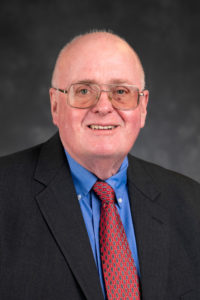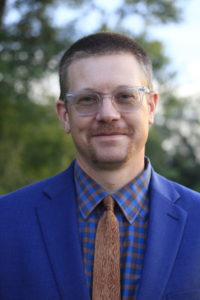Three Texas A&M AgriLife professors honored for outstanding contributions to science
American Association for the Advancement of Science recognizes excellence in research and innovation
Three faculty members in the Texas A&M College of Agriculture and Life Sciences have been named Fellows of the American Association for the Advancement of Science, AAAS, for exceptional contributions to their respective fields of research.
Each year, the AAAS Council elects members whose “efforts on behalf of the advancement of science, or its applications, are scientifically or socially distinguished” to be named Fellows. The 2023 AAAS Fellows include Zach Adelman, Ph.D., professor in the Department of Entomology; Bruce McCarl, Ph.D., professor in the Department of Agricultural Economics; and Seth Murray, Ph.D., professor in the Department of Soil and Crop Sciences.
“The induction of Dr. Adelman, Dr. McCarl and Dr. Murray as Fellows in AAAS is a testament to their unwavering dedication to scientific advancement and a shining reflection of the impact we aspire to make on the world around us,” said Jeffrey W. Savell, Ph.D., vice chancellor and dean for Agriculture and Life Sciences. “We take pride in celebrating our people, knowing their work embodies the spirit of our collective aim to serve as a guiding force across all disciplines of agriculture and the life sciences.”
Recognition as a Fellow of AAAS is a lifetime honor and one of the most prestigious accolades in science. These three scientists within Texas A&M AgriLife are among the 502 innovators who have been elected as Fellows this year by the largest general scientific society, a tradition dating back to 1874.
“As we celebrate the 150th anniversary of the AAAS Fellows, AAAS is proud to recognize the newly elected individuals,” said Sudip Parikh, AAAS chief executive officer and executive publisher of the Science family of journals. “This year’s class embodies scientific excellence, fosters trust in science throughout the communities they serve, and leads the next generation of scientists while advancing scientific achievements.”
Zach Adelman: Pioneering public health needs through insect control

Adelman, Texas A&M AgriLife Research Fellow and endowed chair of agricultural biotechnology, has been recognized as a 2023 AAAS Fellow for his contributions to the biological sciences. Using genetics, genomics and molecular biology, Adelman works to further our understanding of what makes some mosquito species so adept at transmitting viruses such as yellow fever, dengue, Zika and more. His lab works to develop novel gene editing approaches using CRISPR/Cas9 to disrupt the transmission of these vector-borne diseases.
Adelman has also worked to drive the development of safeguards for gene drive and transgenic technologies by providing input on a report prepared by the National Academies of Science, Engineering and Medicine on laboratory containment practices and the oversight of genetic engineering research; helping lead a report to the National Institutes of Health’s director on the oversight of gene drive experiments; and assisting in the creation of new containment guidelines for insects carrying genetic modifications that could spread into wild populations.
Bruce McCarl: Leading policy analysis to mitigate climate change

McCarl, University Distinguished Professor and leader of research in the department, was selected for his contributions to agricultural and environmental economic analysis, particularly for his work with applied economic modeling and advancing climate change impact, adaptation and mitigation knowledge. In conjunction with his research on climate change, he works on resource economics, mathematical programming and policy analysis.
McCarl’s expertise in applied mathematical programming and risk analysis, coupled with a distinguished teaching career, has positioned him as a leader in agricultural economics. His models have been adopted by the U.S. Department of Agriculture and the U.S. Environmental Protection Agency, and he has published numerous highly cited papers in high-impact journals such as Science, Nature and Nature Climate Change. Most recently, he contributed to a paper on policy challenges to enhancing soil carbon sinks.
Seth Murray: Feeding the world by revolutionizing corn breeding and genetics

Murray, AgriLife Research corn breeder and the Eugene Butler Endowed Chair, was honored for his contributions to the field of plant breeding and crop science, especially the development and applications of remotely sensed plant phenotyping. He’s developed novel analytical approaches for using unmanned aerial vehicles high-throughput field phenotyping and phenomics. He and his team use this to identify and select the most promising corn varieties in their breeding program. These screenings and his use of genetic techniques have allowed Murray to develop new corn hybrids bred specifically for the southern U.S.’s environment, that significantly enhance the productivity, sustainability and quality of maize production.
Murray’s commitment to teaching and service, along with numerous accolades such as his elections as President and Fellow of the Crop Science Society of America, exemplifies his dedication to advancing agricultural science. He is also the founder and editor of The Plant Phenome Journal, an open-access journal publishing research, interpretations and datasets related to plant phenomics — the changes in an organism over its lifespan. In addition to chairing 34 graduate committees, he teaches courses on the current topics and history of American agriculture and graduate courses on molecular quantitative genetics in plant breeding and scientific leadership.





